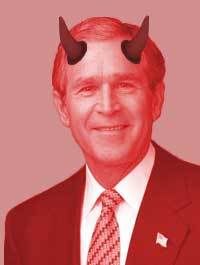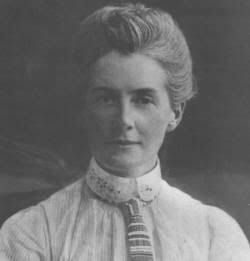Perhaps you haven’t heard but Osama bin Laden was killed the other day. I can only assume you were living under a rock – or possibly in a cave in Pakistan which was the wrong neighbourhood as it turned out. The day after his death was announced, this quote did the rounds on Facebook, and I assume other social media:
I mourn the loss of thousands of precious lives but I will not rejoice in the death of one, not even an enemy.
Which was attributed to Martin Luther King Jr. Soon enough it was pointed out that King had said no such thing, but people kept posting it. The fauxtation then morphed and enveloped an authentic quotation from King. Once you get past the first sentence, you are reading the authentic King:
I mourn the loss of thousands of precious lives, but I will not rejoice in the death of one, not even an enemy. Returning hate for hate multiplies hate, adding deeper darkness to a night already devoid of stars. Darkness cannot drive out darkness: only light can do that. Hate cannot drive out hate: only love can do that.
I don’t suppose anyone created the original line maliciously, and the attribution was made because it sounded like something he might have said. Voltaire never said, “I disagree with what you say, but I will defend to the death your right to say it” but many agree it’s consistent with his worldview. Perhaps King would say the same of this line, I don’t know. Certainly many agreed with the sentiment and posted it with good will and good hearts.
But I did wonder if George W Bush had died that day, or John Howard or Tony Blair, if so many people would have rushed to post this fauxtation. Would their compassion for their fellow human beings have extended to these men who have online been compared quite happily to Hitler, monsters, Satan and cunts? Or would they have posted it if it didn’t contain an implicit rebuke to those Americans who did celebrate? I can’t say I felt like celebrating, but I thought I could understand those that did.
It also made me remember another popular fauxtation from early in the Second Gulf War. This one was attributed to Thomas Jefferson:
Dissent is the highest form of patriotism.
This was quoted by those who opposed the war and were accused of being unpatriotic. Of course, one may object to the decisions of one’s government and still love their country, and I don’t suggest otherwise. It’s called democracy, people. But people used this line as a badge of pride. And even when it was exposed as unauthentic, Barbra Steisand and others said something along the lines of “It may not be true, but it speaks to a higher truth.”
Now, I could not say whether Jefferson would agree with the sentiment or not. But I doubt it. To me, the fauxtation seems to strongly suggest that the dissenter’s patriotism is always greater than those who agree with their government. Really? So those who thought FDR’s programs in the Depression were wrong were more patriotic than those who thought they were right? Those who thought he should have maintained US neutrality rather than join the Allies were the more patriotic? Those who oppose Obama’s Health Plan love their country more than those who support him?
And then to admit, ok I’ve told a lie but it speaks to a higher truth? I love my country so much I can tell lies. My interpretation of truth is on a higher level than yours. I can make up things because I am on the side of right. Such an attitude is not so much opening a can of worms as uncovering the nest of vipers.
No. A lie is a lie is a lie. You want to make the argument that dissent is the highest form of patriotism? Fine, go ahead and make it. Don’t use false appeals to authority to back up what is a very tendentious proposition. Likewise with the King quote. You think your reaction to bin Laden’s death is a better one than those who celebrated? We can have that discussion but don’t use a false quotation as your only evidence.
In any case, I much prefer this quotation (quite authentic) from Edith Cavell. Cavell was a British nurse in Belgium during World War One who saved the lives of casualties from both sides. She also helped Allied combatants to escape back to England. When the Germans found her out, she was arrested, tried and shot. Just before she faced the firing squad, she said,
Patriotism is not enough. I must have no hatred or bitterness towards anyone.
There you are, a similar sentiment, an authentic quote and a challenge to us all. It sure aint easy but, ideally, I believe we should not feel hatred or bitterness to anyone – not bin Laden, nor the crowds who cheered his death, nor George W Bush, John Howard or Tony Blair. Or the people whose postings bug me on Facebook.



No comments:
Post a Comment